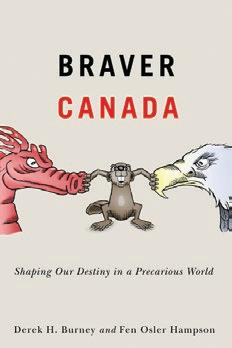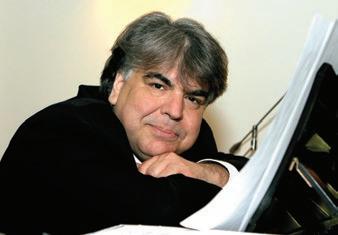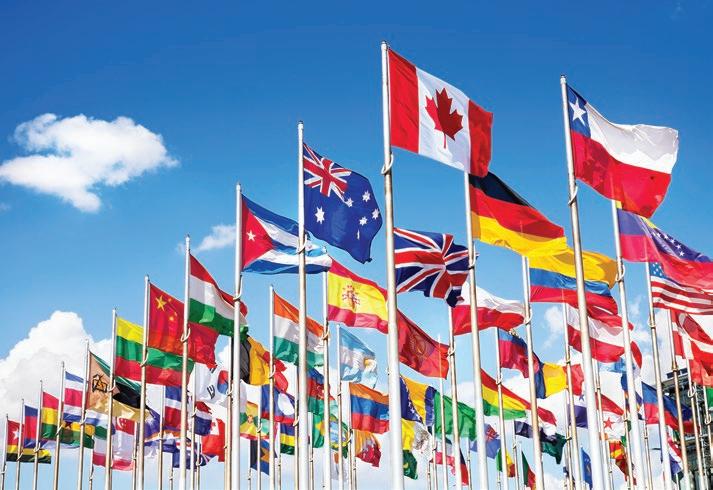
14 minute read
Books: On life in Putin's Russia and Trump's "stable genius
On succeeding — and compromising — in Putin’s Russia
Christina Spencer
Advertisement
Between Two Fires: Truth, Ambition, and Compromise in Putin’s Russia
By Joshua Yaffa January 2020 Tim Duggan Books, Penguin Random House 368 pages Kindle $17 Hardcover: $36.63 Paperback: $16.55
In 1999, Heda Saratova and her young child huddled, terrified, in their apartment in Grozny, Chechnya, as Russian troops battered the capital of the rebellious republic. The city had been torn apart, buildings razed, supplies cut off, residents forced to dodge shells daily. Trapped like every other civilian, Saratova knew that among the helpless were elderly, often frail women. She set out each day, somehow evading sniper fire, to find provisions for them and herself.
Eventually, Saratova began to also document the atrocities and ongoing human rights violations by Russian soldiers in Chechnya and Ingushetia. Such acts of bravery — Saratova was constantly travelling through the war zone to gather evidence of Russia’s “cleansing operations” — transformed her into a full-fledged human rights activist. Then a close colleague was murdered, and her own children were threatened. She bought tickets to Moscow and sheltered there for nearly a year.
On her return to Chechnya, Saratova was a different person, deciding that “I would have to change the style of my work, maybe even change myself.” So began an activism of compromise, in which she backed Russian President Vladimir Putin’s Chechen ally now running the republic, in exchange for help in blunting some of the worst abuses that continued to occur. She cultivated ties with highranking police, military officers and Putin
Elizaveta Glinka, shown here with Russian President Vladimir Putin, was known as “Dr. Liza.” She was a medical professional who reintroduced the notion of charitable acts to a populace that had relied on the state for its needs over decades. Her story ended tragically, however.
backers. She persuaded the government to allow Chechen wives and daughters who had gone to Iraq and Syria with their ISIS families to come home. Despite the fact her own people, and her homeland, had been targets of Russian brutality for years, she would greet the returnees at the airport with a smile and a sign: “We thank Putin for our children.” Saratova was frank about this personally painful image: “I imagine if I didn’t do this, there wouldn’t be a next round of women and children coming home.”
Saratova’s story is among author Joshua Yaffa’s examples of how those subject to the power of Putin cope. The book isn’t about Putin directly; more interestingly, it is about the kinds of people who
succeed in Putin’s Russia — remarkable people who live lives of compromise in a system where no alternative seems to exist. Are they making unethical choices or simply practical ones? The answers are not always clear and while the author repeatedly poses this harsh question, he is not judgmental, allowing his real-life characters to speak for themselves and describe their adaptation.
Yaffa, who first went to Russia in 2001, returned in 2012 as a journalist for The Economist, then The New Yorker. Putin re

turned to the presidency that same year, spending the time since cracking down on dissent and working to reposition Russia as a world power.
In Between Two Fires, we meet an array of people surviving or thriving in Putin’s world. For instance, there is Konstantin Ernst, the general-director of state-backed Channel One who, while enjoying some creative freedom in the 1990s, became an ardent propagandist for the Putin regime without ever seeming to realize he was one. Ernst used the rising power of television to help boost the image of Putin as Boris Yeltsin’s successor, and once the president was in place, directed his own legitimate creativity and talent to “building the myth of Putin as a quasi-sacred figure, in a realm above politics.” Yaffa’s chapter on the dynamics of Russian television under Ernst is fascinating.
We also meet figures in the Russian Orthodox Church who became powerful allies of Putin, adding to the mythology around the strongman leader (and Yaffa tells the story of one priest who wouldn’t bow to the top-down diktats of that arrangement). We meet a Russian zookeeper in Ukraine who supported Putin’s annexation of Crimea; Westerners will get a sense from this chapter of why the move looks very different in Russia from what our own political leaders see. We meet a group of historians who tried to chronicle the days of the Soviet gulags, and we follow the compromises that occurred to ensure the once-independent museum they built on the grounds of the perm-36 gulag could keep operating.
And finally, Yaffa tells the story of the extraordinary “Dr. Liza” — Elizaveta Glinka – a selfless medical professional who almost singlehandedly reintroduced the notion of charitable acts to a populace that had relied on the state for their needs over decades. Glinka’s story is a particularly devastating one, because while helping the needy, the sick and the injured — particularly during the Russian-backed war in Ukraine — she was determined to remain non-political. But not taking sides is, in itself, a political act, and Glinka, who faced danger to her own life on countless occasions — inevitably ended up a tool of the Putin state, with tragic results.
Yaffa clearly yearns for a loosening of the psychological bonds Putin has placed on his people, but finds no easy answers. In fact, while Between Two Fires is unflinching in showing how individuals compromise in today’s Russia, the author is generous in his conclusions about those he meets: “The sorts of compromises made by the people in this book are not all alike: a retreat in the face of grave danger is one thing; an abandonment of principles in search of power and wealth is another.”
A Very Stable Genius: Donald J. Trump’s Testing of America
By Philip Rucker and Carol Leonnig Penguin Press, January 2020 480 pages Kindle: $13.90 Hardcover: $18 Paperback: $23.48
Earlier this year, before the outcome of the impeachment hearings against Donald Trump was known, and before the U.S. president had enmeshed himself in a series of confusing and fact-challenged press conferences about COVID-19, Washington Post reporters Philip Rucker and Carol Leonnig released their carefully researched chronicle of the first three years of the Trump presidency.
A Very Stable Genius is useful reading as the U.S. approaches the November presidential election, if only to confirm that things in the Trump White House have been every bit as bleak as the president’s opponents claim.

Here, U.S. President Donald Trump visits the Pentagon in early 2019 to address the organization’s Missile Defense Review. During a visit two years earlier, to which he was invited to be briefed on vital security issues, the president called the highest military brass ”a bunch of dopes and babies.“
Based on interviews with more than 200 sources — Trump himself declined to be interviewed — Rucker and Leonnig delve into the character and motivations of the man who, we already know from The Apprentice, loves firing people or forcing them out: the FBI’s James Comey, attorney general Jeff Sessions, chief of staff Reince Priebus, national security adviser H.R. McMaster, chief of staff John F. Kelly, secretary of state Rex Tillerson, national security adviser John Bolton, secretary of homeland security Kirstjen Nielsen, secretary of defence James Mattis … the list goes on. At one point, the erratic president had fired so many people, he appeared to be having trouble recruiting a new chief of staff. Former New Jersey governor Chris Christie turned down the position, saying “Why the f— am I going to take this job? You guys are nuts.”
No, Trump isn’t one to go along to get along. In one now-famous meeting described in gritty detail, the president tells a gathering of the nation’s highest military brass, who have invited him to the Pentagon to brief him on vital security issues, “You don’t know how to win anymore … You’re a bunch of dopes and babies.”
In another instance, he badgers Kelly for months about daughter Ivanka and son-in-law Jared Kushner’s security clearance, which the chief of staff has downgraded amid concern from the intelligence establishment about Kushner’s relations with foreign leaders. “Help ’em out here,” Trump demands. “They want the clear

ance, they’re embarrassed. Why can’t [they] have it?” Kelly staunchly refuses; eventually the president simply overrules his top aide.
Trump proves to have little policy experience or interest in gaining it. He is over his head in dealing with North Korea’s Kim Jong-un, seeking input from Christie on what to do. His tough border talk leads to children being separated from their parents and caged, a policy he wants both undone and upheld simultaneously. He decides abruptly to abandon his country’s Kurdish allies in northern Syria, then later backtracks; he zigs and zags on NATO’s usefulness. And his interactions with Vladimir Putin are either breathtakingly naïve or wilfully reckless, from the well-reported “I don’t see any reason why it would be” response when he is asked about Russian interference in the election, to congratulating Putin on the Russian leader’s rigged re-election despite pleas from his top advisers not to lend U.S. credibility to a clearly tainted exercise.
Sucking up so much of the oxygen of the Trump presidency, of course, is the special counsel investigation into Russian interference in the 2016 election. But where Trump is an open book — “In a way, never before has an American president been as accessible and transparent as Trump,” the authors write — Robert Mueller is a cypher. There are genuinely odd aspects to his investigation.
Trump is eager to meet and be interviewed by the special counsel, convinced,
as is the legal team around him, that he has not colluded with any Russian plot. But Mueller is also investigating obstruction, and Trump’s lawyers, worried that the president might inadvertently perjure himself, convince him to reject a face-toface interview. In what the authors term a capitulation, the Mueller team agrees to accept written answers to a series of questions. (In many, Trump states that he simply doesn’t remember enough to provide answers.)
Though he is “a living legend in the law enforcement community… stern, secretive and straightlaced,” Mueller appears at times to sit on the sidelines of his own investigation, even absenting himself from a key meeting with the Trump legal team. “We weren’t repping some minor player, we were representing the president of the United States,” one of Trump’s bewildered lawyers recalls.
There is dissent within Mueller’s team about how to deal with the evidence on presidential obstruction of justice, and the team finally agrees to say, not that Trump is guilty, but that he cannot be exonerated. Effectively, this book’s authors conclude, Mueller has decided “not to decide.”
The 448-page report that is eventually produced is “classic Mueller; brimming with damning facts,” write Rucker and Leonnig. “But it is stripped of advocacy or judgment, and devoid of a final conclusion.” Mueller’s team then also declines to give its views on how the report should be represented to the public, leaving that to Attorney General William Barr, who then summarizes the report publicly as not proving collusion by the president or his team.
That interpretation apparently stuns the special counsel. “Mueller’s team,” the authors write, would later describe Mueller’s reaction: “He looked as if he’d been slapped.” Despite a mountain of detail in the investigation about obstructive episodes, “Trump was winning the spin wars.”
But Mueller, the authors write, “had himself to blame for the misrepresentation of his work, in that he was a by-the-book creature of bureaucratic norms miscast for the Trump era.” Indeed, testifying later to Congress about his report, Mueller gives a lacklustre performance. His work appears to fizzle.
The irony of course, is that a short time after declaring the Mueller “witch-hunt” over, Trump makes a blunt plea to Ukraine President Volodymyr Zelensky to interfere in the coming 2020 election — and this finally sparks impeachment proceedings.

As the book ends, with the outcome of the impeachment not yet known, the authors ask, “Would the system the founding fathers imagined withstand the pressures of this moment? Or would Trump prevail yet again, another pursuit of justice stymied by his sheer political force and the fealty of his followers?”
Months later, we know the answer.
SHORTER TAKES
Braver Canada: Shaping Our Destiny in a Precarious World
By Derek H. Burney and Fen Osler Hampson McGill-Queen’s University Press, March 2020 251 pages Hardcover: $29.65 Kindle: $10
Donald Trump’s America First policy, coupled with “the rise of China, populism and authoritarianism” has led to a “less interdependent world,” observe Derek H. Burney and Fen Osler Hampson, and that spells major challenges for Canada, which has no real plan for dealing with this new state of affairs. Dependent for far too long on our neighbour to the south, and on the international order created after the Second World War, Canada has missed opportunities and committed “unforced errors” in foreign policy under Liberal and Conservative governments alike.
So how does this country advance its interests and values in future? Among other things, the authors say, it must take its own security, including cyber-security, much more seriously and invest in it; it must focus on innovation and boosting made-in-Canada technologies; it must diversify its trade and interests beyond the U.S.; it must regain its “competitive

Lois Siegel

PhotograPhy
Special Event Photographer Personalized Portraits Parties and Fundraisers Ceremonies
Lois has worked as a photographer for the Ottawa Citizen (Around Town and Diplomatica), Ottawa Business Journal, the Glebe Report, Centretown Buzz and Cinema Canada.

edge” and it must revisit its loose attitudes toward immigration. Canada, the authors say in this follow-up tome to their book Brave New Canada, “should occupy the mainstream, not the ‘progressive’ slipstream, a tactic that in recent years has confined it to the periphery on many global issues.”
War Doctor: Surgery on the Front Line
By David Nott Abrams Press 2020 287 pages Hardcover: $31.63 Paperback: $23.09 Audio CD: $38.07
David Nott is a British surgeon who, in his own words, has “travelled the world in search of trouble. It’s a kind of addiction, a pill I find hard to resist.” Over two decades, he has regularly volunteered as a physician in war zones, from Afghanistan to Sierra Leone, from Sudan to Iraq. He does it, he writes, because all people have a right to proper care, even in the midst of the bombing.
Three times, he ends up travelling to conflict-battered Syria, where, he notes, there were more than 450 attacks on hospitals in the first six years of the conflict, 90 per cent of them perpetrated by the Syrian government or Russian forces. Eventually, Nott’s medical interests move him into activism as well, as he struggles to get medical staff and children out of Aleppo before it is annihilated. Those efforts include a detailed recounting of a series of bizarre regular phone calls he makes directly to the office of Syrian President Bashar Assad.

foreign correspondent’s memoir
By Deborah Cassrels ABC Books, April 2020 336 pages Kindle: $10.25 Paperback: $37.70 Audio CD: $30
Her marriage in tatters, journalist Deborah Cassrels moved to Indonesia in 2009 as the first Bali correspondent for the Australian, an adventure that would include coverage of politics, terrorism, criminal trials and travel — lots of travel. The archipelago measures 1,760 kilometres north to south, and is one of the most active volcano zones in the world, in turn sparking earthquakes, floods and tsunamis.
None of it daunts Cassrels, who has come to escape her own “personal war zone” back in Sydney, Australia. “There was nowhere I wouldn’t go. From the jungles of north Sulawesi in 2013 to hundreds of trips to the heaving city of Jakarta and back to incongruous Dickensian pockets in remote Bali … My remit as a correspondent for The Australian in 2009 was all-encompassing. With no frills.” From interviewing drug dealers at Kerobokan Prison to flights aboard death-defying

small aircraft, she covers her beat with energy and a sense of adventure, despite a national government that wants to keep foreign correspondents “under its thumb.”
Christina Spencer is the editorial pages editor of the Ottawa Citizen and the inaugural recipient of the Claude Ryan Award for Editorial Writing at the 2017 National Newspaper Awards. She holds a master's in international affairs from the Norman Paterson School of Interna
tional Affairs at Carleton University.











